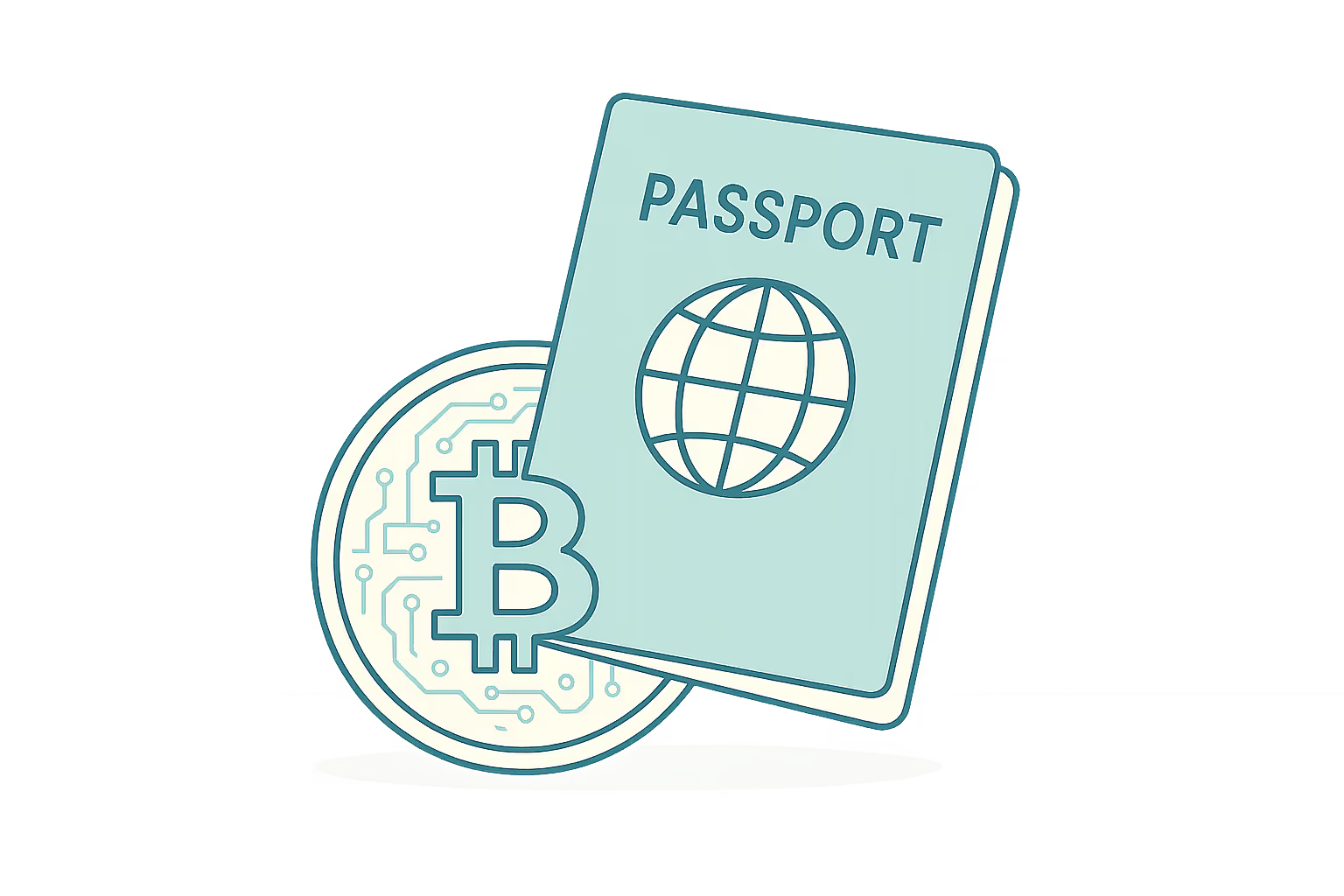Bitcoin mining, long seen as the backbone of the Bitcoin network, holds immense promise not only as a monetary innovation but also as a transformative force in energy economics and financial sovereignty. However, it also remains steeped in misconceptions - both within the Bitcoin community and in the broader public. In a recent in-depth discussion, Bitcoin mining, its environmental implications, and its societal role were explored to uncover its deeper significance. This article examines those insights, dispels myths, and highlights why Bitcoin mining may be more crucial than many people realize.
The Foundational Role of Bitcoin Mining in Financial Freedom
The Right to Transact: A Precursor to All Freedoms
Central to the discussion was the idea that the right to transact is a foundational human right. Without the ability to freely and privately exchange value, other liberties - freedom of speech, protest, or even self-defense - become significantly hindered. Historically, the U.S. Constitution did not explicitly enshrine this right, likely due to the lack of technological threats at the time it was written. Now, with financial surveillance systems increasingly suppressing monetary freedom, this omission is becoming painfully evident.
Bitcoin mining, in this context, represents much more than a way to generate Bitcoin. It is a mechanism for individuals to take direct control over their wealth, free from the restrictions of centralized financial systems. Wild Bitcoin - freshly mined Bitcoin free of ties to Know-Your-Customer (KYC) regulations - embodies the essence of financial sovereignty, allowing users to engage in transactions without surveillance.
Redefining the Bitcoin Mining Landscape: Misconceptions and Realities
The Shift from Mining to Exchanges
When Bitcoin first emerged, mining was the predominant method for acquiring Bitcoin. Early adopters contributed hash power to the network, decentralizing its security while simultaneously earning Bitcoin. However, as centralized exchanges like Coinbase offered convenience, much of the Bitcoin community migrated toward purchasing Bitcoin instead - ceding mining dominance to industrial-scale operations motivated by fiat gains rather than Bitcoin's ideological principles.
This shift has introduced significant challenges to the ecosystem, including:
- Fiat-driven mining centralization: Many large-scale miners prioritize profits in fiat currency, rather than network integrity or decentralization.
- Reduced user sovereignty: Retail Bitcoiners, by relying on exchanges, expose themselves to KYC regulations, capital gains taxes, and potential surveillance.
A Path Back to Mining
To realign incentives and regain control of the network, Bitcoiners are increasingly exploring mining as an acquisition method. Not only does this allow users to obtain "wild Bitcoin" that isn’t surveilled, but it also strengthens the network by decentralizing hash power. Services that make mining accessible - removing the technical and logistical barriers - are helping shift the tide back toward individual participation in mining.
Breaking Down Key Misconceptions About Bitcoin Mining
For Bitcoiners: More Than Just ROI
Within the Bitcoin community, mining is often analyzed through the lens of fiat return on investment (ROI). This skewed perspective misses the more critical question: What is the cost per Bitcoin compared to purchasing it on an exchange?
By understanding mining as a method of Bitcoin acquisition rather than merely a financial investment, Bitcoiners can evaluate its true value. Mining rigs, while requiring upfront capital expenditure, often yield Bitcoin at a lower effective cost than buying through exchanges, particularly when factoring in long-term price appreciation.
For the General Public: Energy Myths Persist
Despite significant academic research debunking myths around Bitcoin's energy use, public misconceptions remain pervasive. Common concerns include:
- "Bitcoin mining wastes energy." This argument ignores the fact that Bitcoin mining seeks the lowest-cost energy, typically surplus or stranded energy that would otherwise go to waste.
- "Mining is bad for the environment." In reality, Bitcoin mining is the most renewably powered industry globally, with miners increasingly adopting clean energy sources such as hydro, wind, solar, and flared methane gas.
As Bitcoiners have long noted, energy that isn’t utilized is energy wasted. Bitcoin mining, by providing a use case for surplus and off-peak energy, helps stabilize grids and incentivize renewable energy build-outs.
Addressing Mining Centralization Risks
The Danger of Pool Centralization
One of the most pressing issues within Bitcoin mining is the centralization of hash power among a small number of mining pools. With three entities controlling over 60% of the hash rate, the risks of censorship or manipulation become non-negligible. Compounding this issue is the dominance of one hardware manufacturer, Bitmain, which not only supplies mining rigs but also operates its own pools and exerts influence over others.
Solutions on the Horizon
Efforts to decentralize mining pools are underway, most notably through innovations like Stratum V2 and Ocean, which return block template creation to individual miners. This reduces the risk of a single entity exerting undue influence over the network.
Additionally, fostering more widespread participation in mining - whether through at-home setups, hosted solutions, or community-operated facilities - can help dilute the concentration of hash power and restore the network’s foundational decentralization.
The Geopolitics of Bitcoin Mining
Nation-State Mining: A Strategic Imperative
As more countries recognize Bitcoin’s potential as a strategic asset, nation-state involvement in mining is becoming increasingly likely. Countries like Bhutan have already leveraged their abundant hydroelectric resources to mine Bitcoin, turning excess energy into a globally liquid asset. This marks a stark contrast to nations like the United Kingdom, where renewable energy is curtailed and wasted at significant cost to taxpayers.
A Tale of Two Futures
The question remains whether governments will embrace Bitcoin mining as a tool for innovation and sustainability or view it as a threat to existing monetary systems. Regardless, the competitive dynamics of Bitcoin mining are likely to cement its role in the geopolitical landscape in the years to come.
Key Takeaways
- Mining and Financial Freedom: Bitcoin mining provides a way to generate "wild Bitcoin" free from KYC surveillance, reinforcing financial sovereignty.
- Public Misconceptions Persist: Despite academic progress, myths around Bitcoin’s energy use and environmental impact remain entrenched.
- Decentralization Challenges: Mining pools and hardware centralization pose risks to the Bitcoin network but are being actively addressed through technological advancements like Stratum V2.
- Cost-Effective Acquisition: For Bitcoiners, mining often provides a lower effective cost per Bitcoin compared to purchasing through exchanges.
- Geopolitical Implications: Nation-states are beginning to recognize Bitcoin mining as a strategic advantage, with some leveraging renewable energy to generate sovereign wealth.
- Energy Incentives: Bitcoin mining accelerates the adoption of renewable energy by providing an economic use case for surplus or stranded energy.
Conclusion: The Path Forward for Bitcoin Mining
Bitcoin mining is more than just a technical process - it’s a critical pillar of financial sovereignty, energy innovation, and decentralization. As we move into a future where nation-states and institutions increasingly enter the fray, it’s imperative for individual Bitcoiners to reclaim their role in supporting the network through mining.
By dismantling misconceptions, pushing for decentralization, and embracing mining as a means of Bitcoin acquisition, the community can ensure Bitcoin’s resilience and integrity for generations to come. Ultimately, Bitcoin mining is not just about energy or economics - it’s about preserving freedom in an increasingly surveilled world.
Source: "BITCOIN MINING: MISCONCEPTIONS, NATION STATES, CENTRALIZATION RISK, KYC-FREE SATS | Kent Halliburton" - THE Bitcoin Podcast with Walker, YouTube, Jul 3, 2025 - https://www.youtube.com/watch?v=7EFXunENi9Q
Use: Embedded for reference. Brief quotes used for commentary/review.

